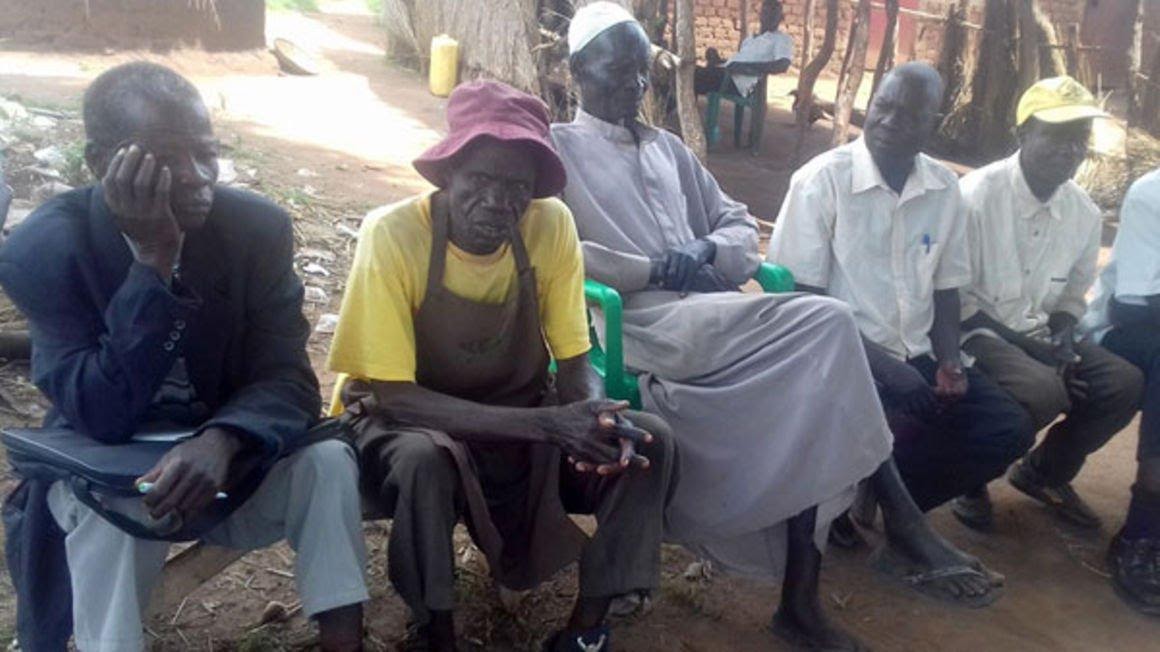UGANDA, Luweero | Real Muloodi News | Local Councils (LCs) have the responsibility to oversee primary mediation to resolve disputes and enforce justice in village courts. However, according to the Daily Monitor, little information is available about their effectiveness in providing justice in cases involving land disputes that come under their authority.
LCs are one of the most accessible justice mechanisms in Uganda. The local population trust LCs because they favour reconciliation and dispute resolution.
A good example for how to use LCs to win land disputes is a case by former Attorney General Kiddu Makubuya. On April 26, Mr. Makubuya won a land case through the LC court against his neighbour, Mr. Steven Ssekamatte.
Mr. Steven Ssekamatte had allegedly encroached on Mr. Makubuya’s land. After requests for him to vacate were unsuccessful, Mr. Makubuya went to Mugogo LC court in Luweero District to seek mediation and justice in his land dispute with Mr. Steven.
The chairperson of Mugogo Village, Mr. Robert Kiwanuka, confirmed that Mr. Makubuya had brought the case to their attention. They held several meetings in which both parties were present.
During the hearing of the case, the gentleman who sold the land to Mr Makubuya, and also witnessed the purchase of the land for Mr Ssekamatte, testified against Mr Ssekamatte.
Mr Kiwanuka said the LC court ruled in favour of Mr. Makubuya. “The evidence from the elders and residents was overwhelming,” he said.
“The elders and residents helped to draw the new boundary to resolve the conflict. Both parties attended all the LC1 court proceedings, where we resolved to visit the disputed piece of land and drew the new boundary line to avoid future misunderstandings,” Mr. Kiwanuka told the Daily Monitor.
Mr Makubuya is a seasoned lawyer, with access to higher courts. However, he used the LC court in his village, saying village courts are constitutional and are best suited in resolving land conflicts that touch the common person.
“I decided to report my case at the village court because it constitutes members who are very conversant with whatever takes place in the area. They are well-placed to tell the facts on any matter affecting their residents,” Mr Makubuya said after the ruling.
He added many Ugandans do not know the importance of village courts, and therefore they are under-utilised.
A Local Council Court may make an order for any of these below:
- Reconciliation;
- Compensation;
- Restitution;
- Community service;
- And apologies.
Village courts are:
- Constitutional;
- Better suited to settling land disputes that affect ordinary people;
- Cost-effective;
- Save time;
- And they use friendly methods of resolving land disputes, such as mediation.
Land conflicts are common, according to Ms. Hadijah Luliika, an elder and councilor representing Makulubita Sub-county in Luweero District. However, if both the elders and residents play essential roles in their society, they may solve these disputes, the Daily Monitor.
All formal structures that directly deal with land dispute resolution include:
- The LC2 – the first court, for instance, for land disputes.
- The LC3 at the sub-county court handles land disputes that are referred from LC2.
- The chief magistrate’s court, which handles cases that are referred from LC3.
- The Residential District Commissioner (RDC) at the district level (LC5).
However, Mr. Samuel Munobe, the Luweero Chief Magistrate, stated to the Daily Monitor that while village courts have the permission to mediate and resolve land disputes, they can only do so on non-titled land.
Read More Like This



